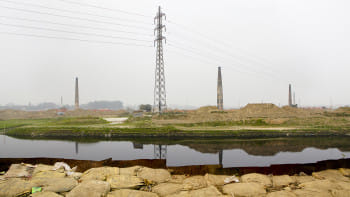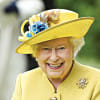Queen Elizabeth’s death – why the mixed reactions?

The longest-serving monarch of the British Empire, Queen Elizabeth II, has passed away at the age of 96, putting an end to a reign that lasted seven decades. This was somewhat expected by those following the Royal Family, given the Queen's age and health condition. The other thing that was anticipated from her passing was the revival of the criticism of the British Empire, and its history of colonialism. Needless to say, netizens lived up to the latter expectations as the Queen's passing brought in a lot of reminders of the misdeeds of the British crown alongside the mourning.
World leaders expressed great sorrow at the passing of the Queen. Much of Britain has also adorned a cloak of mourning, for example, a test match between England and South Africa has been suspended. After all, for the first time in almost a century, Britain will witness a transition of the crown. More than that, they will be missing her as the land's figurehead.
Over the years, people's affinity and curiosity towards the Royal Family has only grown bigger, and the Queen's presence and her reactions to everything taking place within the family was one of the things that drew this attention. With her gone, the void will definitely be felt, not just by those who surround the crown at present, but also those who see the crown and the British Royal Family as a symbol of power.
Death is something we should not celebrate, unless, maybe, it is the lawful death of someone guilty of unspeakable crimes. But what if the person dying, although guilty, was never charged with those crimes? What if people fond of that person were so ignorant that they refused to acknowledge the person's guilt and crimes? This is exactly what drew the other half of the reactions to the Queen's death, and reignited the criticism surrounding her and the Royal Family.
An article by NBC News sums up this criticism perfectly. It focuses on how people from countries once colonised by the British have taken a dislike towards the Queen and the Royal Family. The British were once responsible for the death and displacement of millions of people across the globe, particularly from the Caribbean, African, and here in South Asia. Their hasty decisions when leaving former colonies also led to problems that exist to this day, like the conflicts in Kashmir, and the many thousands of enclaves left along the borders of India and Bangladesh.
But the thing most responsible for this criticism at the time of her death is the fact that neither Queen Elizabeth nor any member of the Royal Family ever apologised for the British imperial crimes committed in the past. She wore a crown adorned with the jewels of a past stolen from Britain's many colonies, yet she never found it politically beneficial to apologise for them, and so she never did.
Surely, Queen Elizabeth alone cannot be held responsible for all the atrocities committed by the British Empire over the years. In many cases, the decisions made by the British government did not come directly from her. However, as the figurehead, she was the one everyone saw at the top of all this, and eventually directed their rage and anger towards her. What they need to know and understand is that all this goes way beyond.
Prof. Matthew Smith from University College London explained the whole situation beautifully in the NBC News article mentioned earlier.
"I think when people voice those views, they're not thinking specifically about Queen Elizabeth," he said.
"They're thinking about the British monarchy as an institution and the relationship of the monarchy to systems of oppression, repression and forced extraction of labor. That's what they're often responding to. And that's a system that exists beyond the person of Queen Elizabeth."
Reference
NBC News (2022). Queen Elizabeth's death revives criticism of Britain's legacy of colonialism.
Faisal Bin Iqbal is sub-editor and digital co-ordinator at SHOUT, The Daily Star.

 For all latest news, follow The Daily Star's Google News channel.
For all latest news, follow The Daily Star's Google News channel. 









Comments